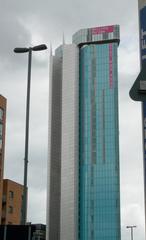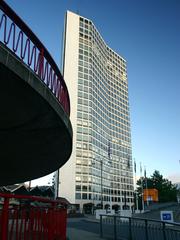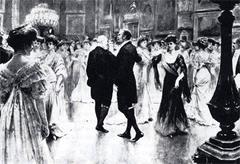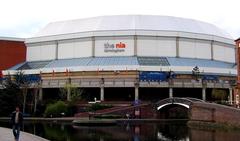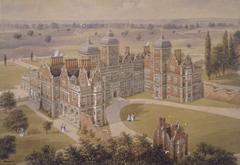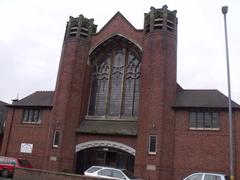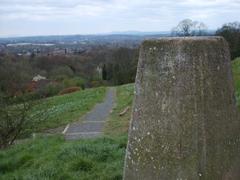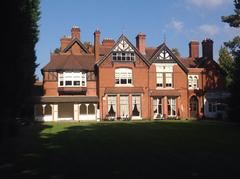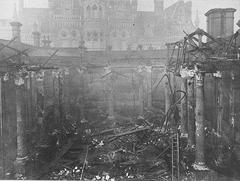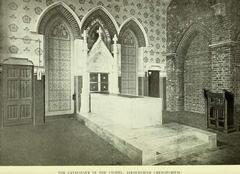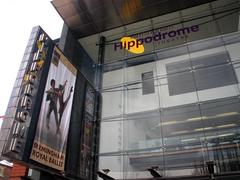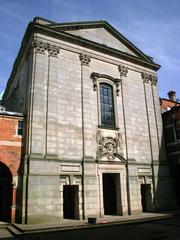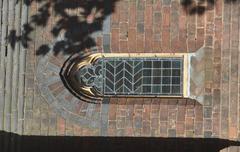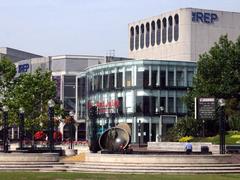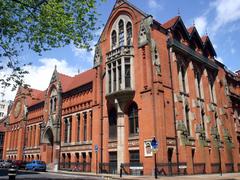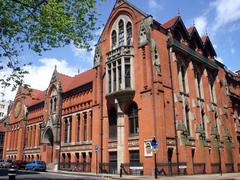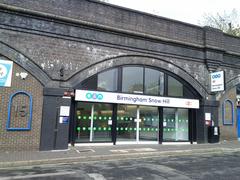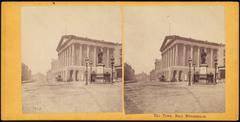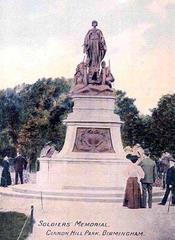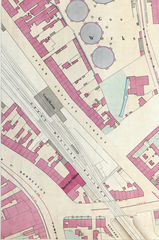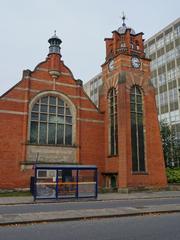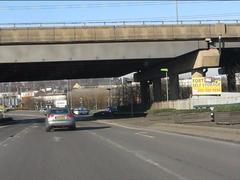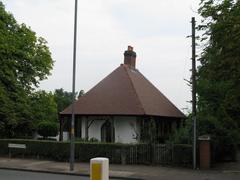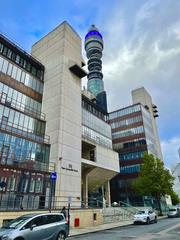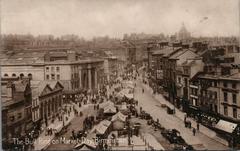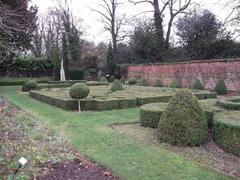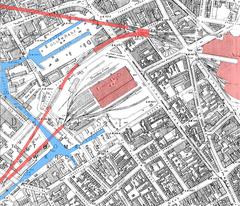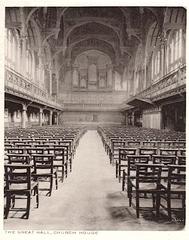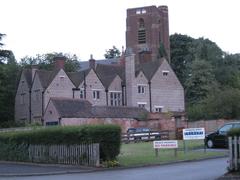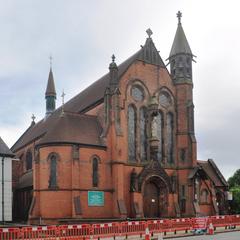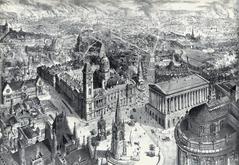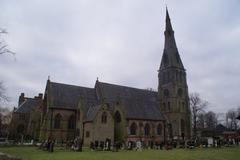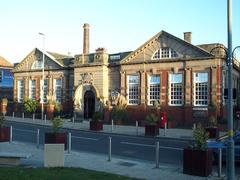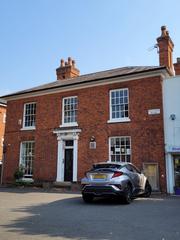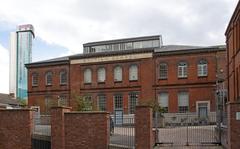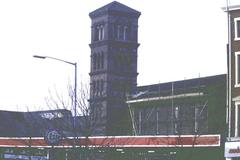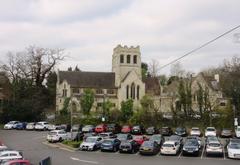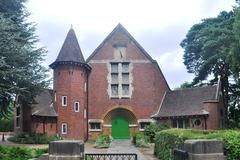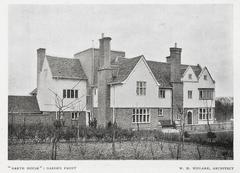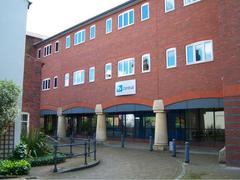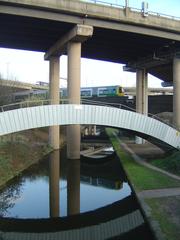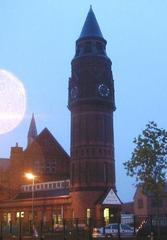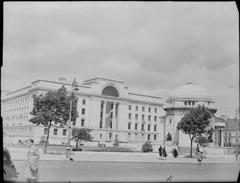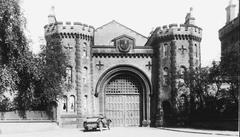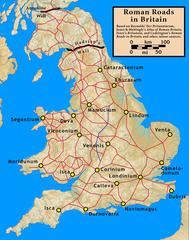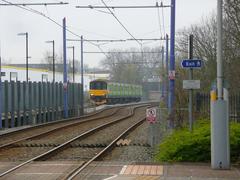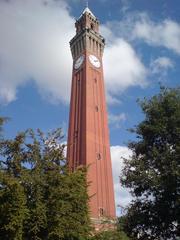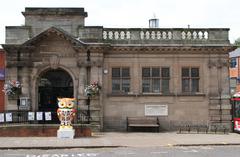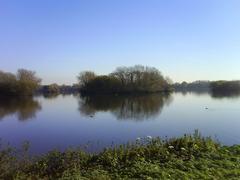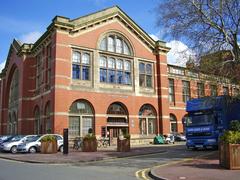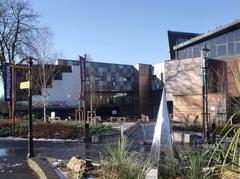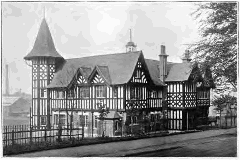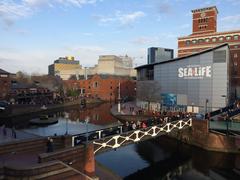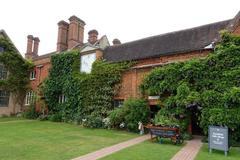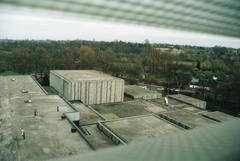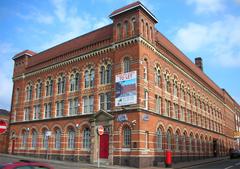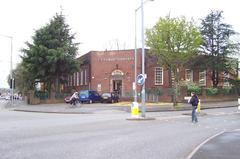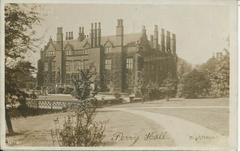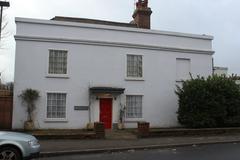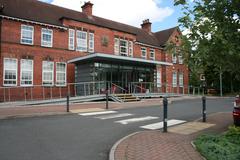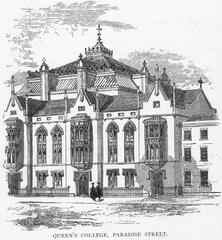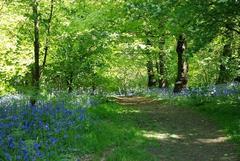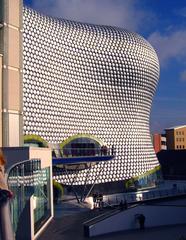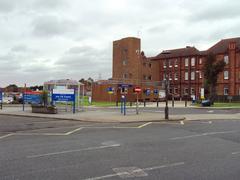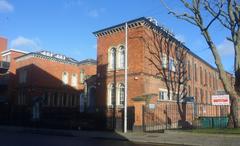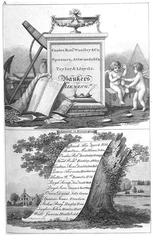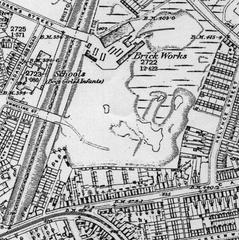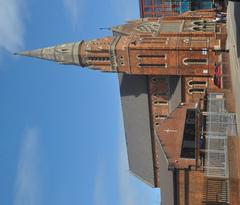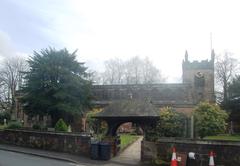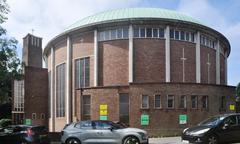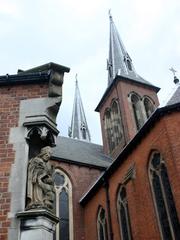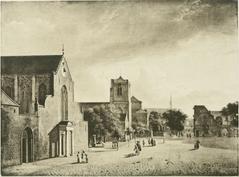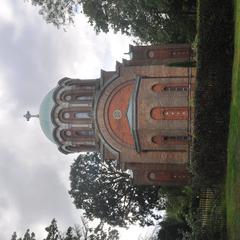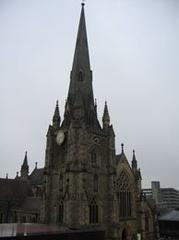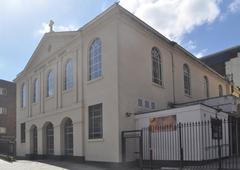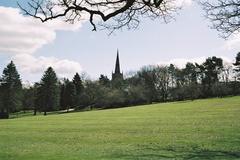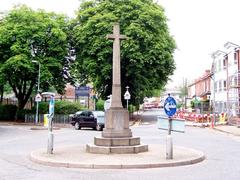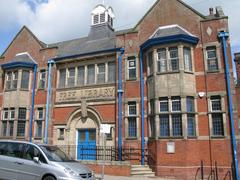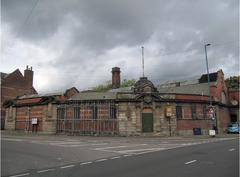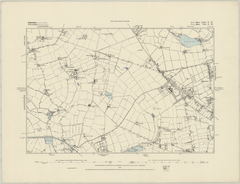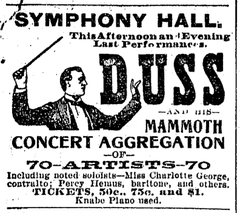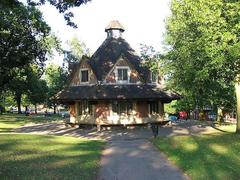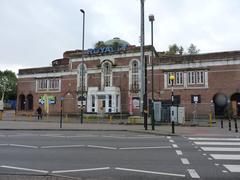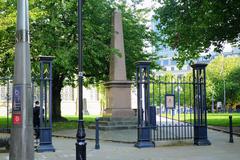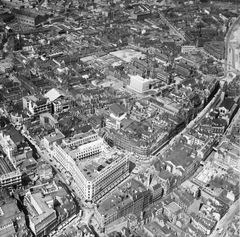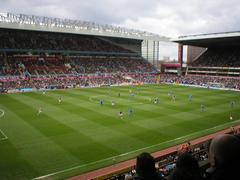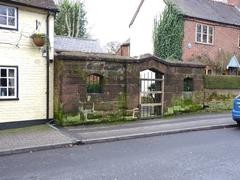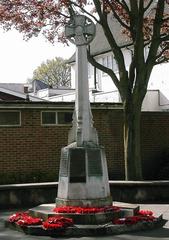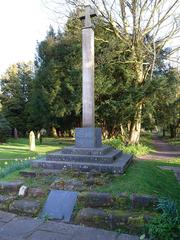
Bordesley Hall Visiting Hours, Tickets, and Birmingham Historical Sites Guide
Date: 04/07/2025
Introduction
Bordesley Hall, nestled near Birmingham, United Kingdom, stands as a testament to the city’s dynamic history—from its medieval roots to its role in the Industrial Revolution and its ongoing urban development. Though the original Georgian mansion was destroyed in the 18th century, the estate’s legacy is preserved through its surviving features, evolving architecture, and the stories embedded in Birmingham’s broader historical landscape. This comprehensive guide details Bordesley Hall’s origins, architectural and cultural significance, visitor information, accessibility, nearby attractions, and the current status of redevelopment. Whether you are a history enthusiast or planning a visit, you’ll find practical information to enrich your experience and understanding of Bordesley Hall and its place among Birmingham’s historical sites. For the latest updates, always consult official resources (Wikipedia: Bordesley Hall), the Rowney Green Association, and event listings such as Eventbrite.
Table of Contents
- Introduction
- History of Bordesley Hall
- Architectural Significance
- Key Historical Events
- Visitor Information
- Bordesley Hall in Context
- Nearby Attractions
- Travel Tips
- Frequently Asked Questions (FAQs)
- Visuals and Media
- Preservation and Future Prospects
- Summary & Resources
History of Bordesley Hall
Early Origins
Bordesley Hall traces its origins to the medieval period, with the area first recorded as “Bordesleie” in 1175. The name itself likely refers to “Bord’s clearing,” reflecting its beginnings as a rural manor. The original estate featured a moated medieval manor house, later replaced in the mid-18th century by a grand Georgian mansion built for John Taylor I, a prominent Birmingham industrialist and banker (Bill Dargue: Bordesley).
Architectural Flourish
The Georgian Bordesley Hall was renowned for its symmetry, balanced façade, classical proportions, and sash windows. Set within a landscaped park of around 15 hectares (40 acres), the estate boasted ornamental features such as pools, an island, bridges, and a grotto. The overall design reflected the influence of landscape architects like Capability Brown and the taste for picturesque landscapes (Wikipedia: Architecture of Birmingham).
A Site of Conflict: The Priestley Riots
In 1791, Bordesley Hall became a symbol of the social and religious unrest that swept Birmingham. During the Priestley Riots, the mansion was attacked and burned by a mob targeting supporters of religious dissent and reform. Owner John Taylor II’s claim for damages highlighted the scale of loss, with compensation falling short of estimated costs. The ruins of the hall remained for decades, standing as a stark reminder of the era’s volatility (Wikipedia: Bordesley Hall; Wikipedia: Bordesley, Birmingham).
Urban Transformation
Following its destruction, Bordesley Hall was briefly rebuilt but by the 1840s the estate was sold for housing development, mirroring Birmingham’s rapid urbanization during the Industrial Revolution. The former parkland is now covered by residential streets like Albert and Bolton Roads, illustrating the shift from rural estate to urban neighborhood (Bill Dargue: Bordesley).
Architectural Significance
Bordesley Hall epitomized the Georgian country house style, with hallmark features such as red brick construction, stone detailing, a symmetrical layout, and mature parkland. Surviving elements, such as the historic kitchen garden wall, continue to anchor the estate’s heritage amidst new residential development (Rowney Green Association). The ongoing restoration and adaptive reuse of these features ensure that Bordesley Hall’s architectural legacy endures.
Key Historical Events
- Priestley Riots (1791): The hall’s destruction during these riots marked a pivotal moment in Birmingham’s social history, highlighting tensions over religious freedom and reform.
- 19th-20th Century Urbanization: The estate’s lands were progressively sold and developed for housing, reflecting Birmingham’s transformation from rural hamlet to industrial city.
- 21st Century Redevelopment: Recent planning approvals have enabled the conversion of the hall into apartments and the construction of new homes, balancing conservation with contemporary needs (Insider Media).
Visitor Information
Visiting Hours & Tickets
- Current Status: As of July 2025, Bordesley Hall is private property undergoing redevelopment. There are no regular public visiting hours or ticketed entry for the main building.
- Public Access: The estate’s grounds, including some restored heritage features, remain accessible via public footpaths during daylight hours. Access may be restricted by ongoing construction—check updates before visiting.
- Special Events: Occasional open days, wedding fairs, and heritage events provide opportunities for public access. Advance registration is often required (Eventbrite).
Accessibility
- Grounds: Public pathways are generally accessible, though some terrain may be uneven. Step-free access and accessible parking are provided, but construction may temporarily affect routes.
- Facilities: No permanent visitor centre, toilets, or cafés on site. Event-specific amenities may be available during large public gatherings.
Special Events & Tours
- Open Days/Wedding Fairs: The annual “Wed-fest Open Wedding Weekend” is scheduled for July 5–6, 2025, offering public access and event showcases.
- Guided Tours: Not routinely available, but local history groups sometimes organize thematic walks or talks.
Bordesley Hall in Context
The hall is part of a wider historical landscape, including landmarks like the Grade II listed Bordesley Viaduct and proximity to Birmingham’s cultural destinations. Its transformation reflects the broader narrative of Birmingham’s growth and adaptation (Town and Village Guide).
Nearby Attractions
- Birmingham Museum and Art Gallery: World-class collections of art and local history (Tourist Places Guide)
- Birmingham Back to Backs: Restored 19th-century workers’ housing
- The Custard Factory: Creative and cultural hub in former industrial buildings
- Birmingham Botanical Gardens and Black Country Living Museum: Ideal for combining a day trip or weekend itinerary
Travel Tips
- Best Time to Visit: Spring and summer months (March–August) offer pleasant weather for outdoor exploration (UK Travel Planning).
- Transport: Easily reached via Birmingham’s rail and bus network. Parking available in nearby residential streets, but check for restrictions during events.
- Respect Private Property: Stick to designated public areas, especially during redevelopment.
Frequently Asked Questions (FAQs)
Q: Can I visit Bordesley Hall or buy tickets?
A: The hall itself is private property and not open for general public tours. Occasional open days or events may offer access—check official listings for details.
Q: What are the visiting hours?
A: Public pathways in the grounds are open during daylight hours; the building itself is not open to the public.
Q: Are there guided tours?
A: Not regularly, but special tours may be offered during heritage events.
Q: Is the site wheelchair accessible?
A: Most public paths are accessible, but construction and some uneven terrain may present challenges.
Visuals and Media
Explore images and maps of Bordesley Hall’s Georgian façade and kitchen garden wall on local heritage websites and tourist portals. Use descriptive alt tags (e.g., “Bordesley Hall Georgian mansion exterior”) to improve accessibility and searchability.
Preservation and Future Prospects
The current redevelopment balances the preservation of Bordesley Hall’s historic features with the integration of new residential spaces. Protected elements like the kitchen garden wall and the open, ungated entrance maintain the estate’s heritage while providing community green space (Rowney Green Association). Continued collaboration with heritage organizations supports ongoing conservation.
Summary
Bordesley Hall encapsulates Birmingham’s journey from rural estate to industrial centre and modern suburb. While the original hall no longer stands, the estate’s restored features and ongoing redevelopment offer visitors a unique glimpse into the city’s layered past. Self-guided walks, occasional events, and proximity to major attractions make it a rewarding stop for those interested in heritage and urban transformation. To stay updated on visiting hours, events, and accessibility, monitor official resources and local heritage groups. For curated historical guides and alerts on Bordesley Hall and other sites, consider downloading the Audiala app (Rowney Green Association; Wikipedia: Bordesley Hall).
References
- Wikipedia: Bordesley Hall, Birmingham
- Bill Dargue: Bordesley, Bordesley Village
- Insider Media: New Homes on Historic Grounds
- Rowney Green Association: Bordesley Hall
- Eventbrite: Wed-Fest Open Wedding Weekend
- Tourist Places Guide: Birmingham Attractions
- UK Travel Planning: Birmingham Travel Guide

